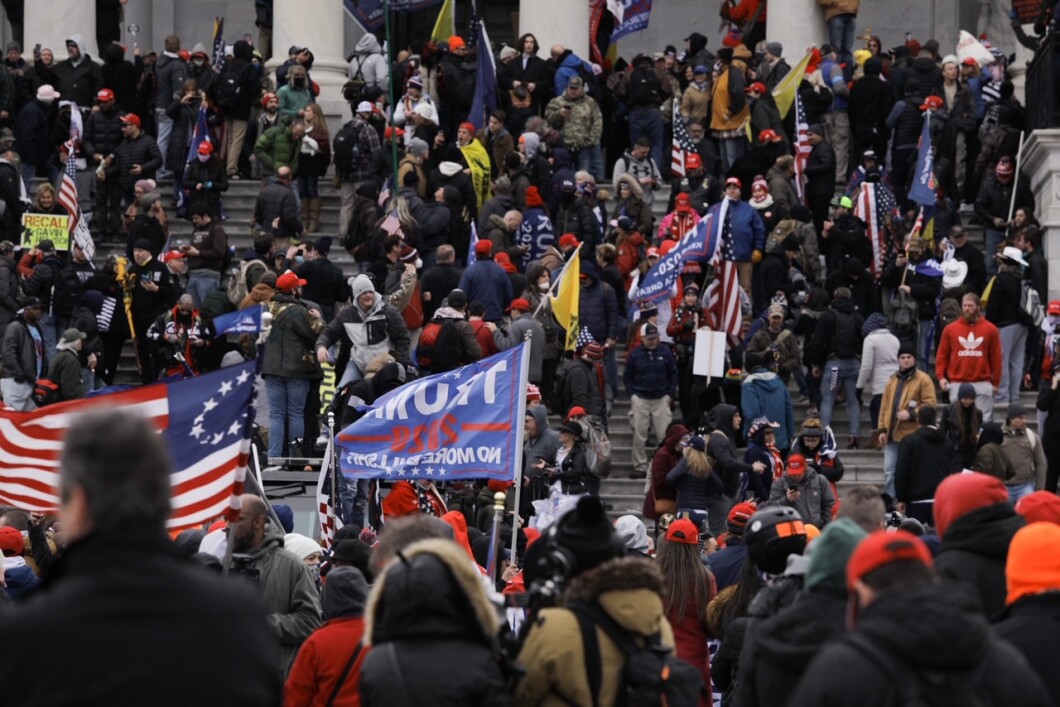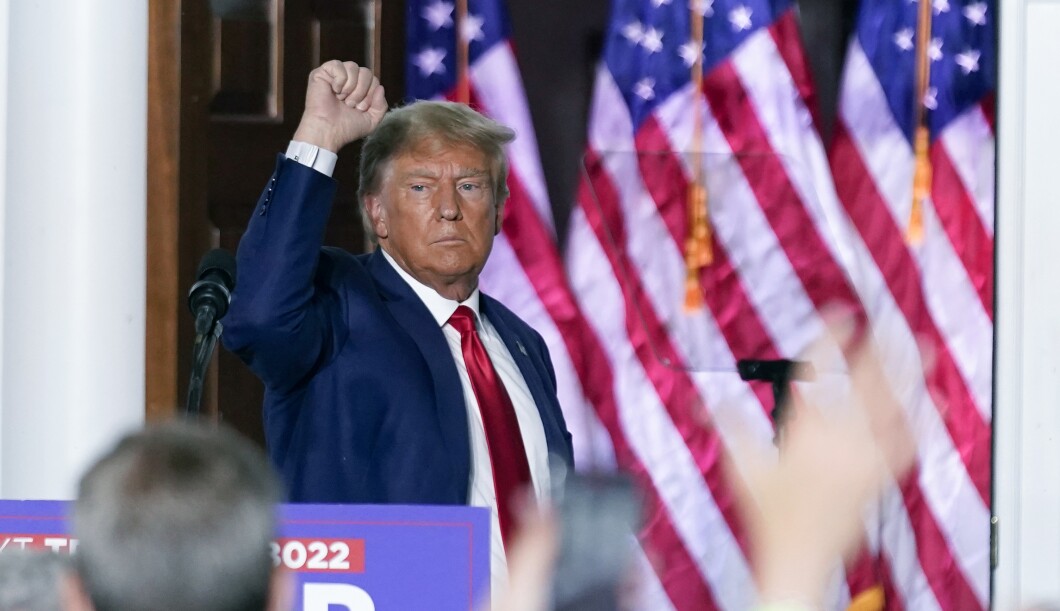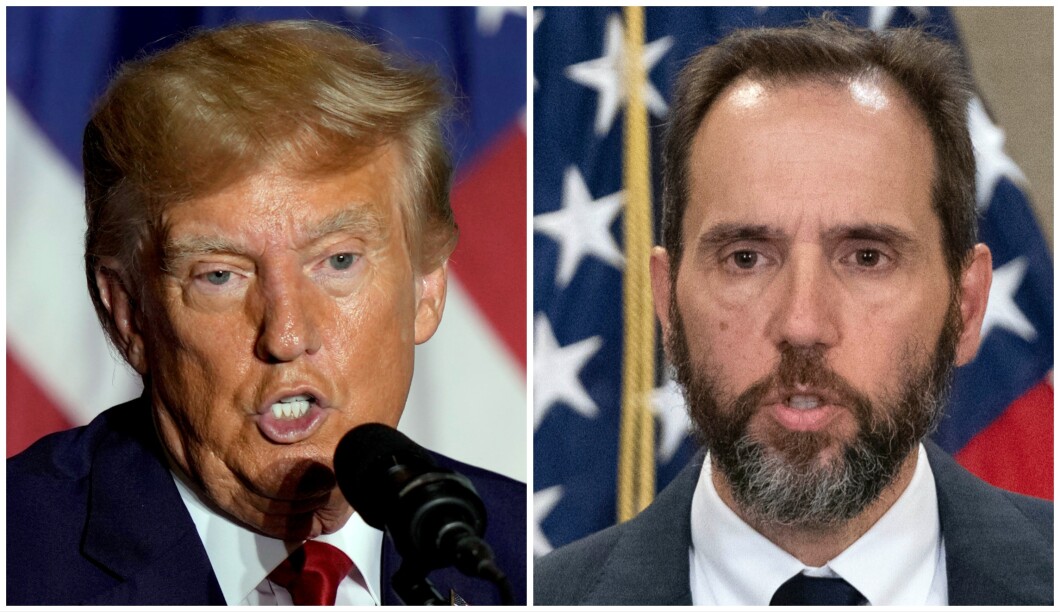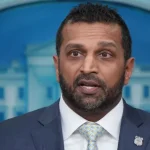
Two federal courts in Washington, D.C., have been asked to expedite reviews of President Donald Trump‘s argument that he has presidential immunity against his criminal prosecutions, setting up deadlines that will fill the legal calendar into the new year.
The U.S. Court of Appeals for the District of Columbia Circuit said Wednesday it will begin taking briefs over the immunity dispute just hours after the federal district judge presiding over Trump’s 2020 election subversion case paused many of the proceedings while awaiting a higher court’s ruling on the core question of Trump’s appeal. Meanwhile, the Supreme Court is also weighing the same appeal after special counsel Jack Smith on Monday urged the justices to fast-track the matter, though it hasn’t agreed to take the case yet.
BIDEN OFFICIALLY A TARGET OF HOUSE IMPEACHMENT INQUIRY AFTER VOTE
The Supreme Court quickly answered Smith’s petition Monday afternoon, ordering Trump’s lawyers to respond in writing by Dec. 20. The special counsel wanted to skip over the D.C. Circuit in order to keep a March 4 trial date on schedule, which could be subject to change depending on how long the appeals process takes.
But per the D.C. Circuit’s two-page order on Wednesday, the judges in the circuit court are moving ahead as if they will hear the appeal first until it becomes clear whether the Supreme Court will take the case.
Potentially complicating Smith’s efforts to keep the trial on track is the Supreme Court’s agreement to review an obstruction charge used against Trump and hundreds of his supporters who faced criminal charges for their involvement in the Jan. 6, 2021, riot at the Capitol. Trump’s lawyers have made clear their intent to delay a criminal trial at every juncture until after the 2024 election, as the Republican primary front-runner would likely seek to rid himself of federal indictments if he wins the election.
What is the obstruction charge?

The high court will consider whether the statute under which defendant Joseph Fischer was charged, Section 1512 (c)(2) of the U.S. Code, is the right law to use in his and hundreds of other Jan. 6 prosecutions, including the former president’s case. The charge criminalizes “corruptly” obstructing, impeding, or blocking an official government proceeding and carries a maximum penalty of 20 years in prison.
Trump’s lawyers could attempt to make the argument that Trump’s case can’t move ahead until the high court rules on the scope of the offense, which could affect both the obstruction charge and a related conspiracy charge against Trump. The trial court judge would have to agree to the pause.
Andrew Lieb, an attorney for Lieb at Law, was skeptical about whether Trump could convince his judge to delay the case while justices review the obstruction charge.
“We’re making it about Trump, but whenever you’re hearing a co-defendant and you’re also a defendant in a criminal case who’s bringing something to the Supreme Court, is the standard now that everyone gets everything delayed until that’s resolved?” Lieb said, suggesting it would be strange to delay a trial while waiting for the Supreme Court to determine a separate legal issue.
What is Trump’s immunity claim, and how could it be decided?

If the Supreme Court ultimately agrees to take the appeal instead of letting the D.C. Circuit decide whether Trump is immune from prosecution, it will be asked to resolve the tricky question of whether a former president is shielded from federal charges that stem from actions taken while in office.
Lieb said the Supreme Court is likely to decide either to send the issue down to the D.C. Circuit or to “find no immunity.” Some legal experts have also suggested that the high court could decide Trump is immune from the charges, though it’s arguably the most unlikely outcome out of all the possibilities.
“I could see under either situation, they’re gonna set out what the parameters are,” Lieb explained. “There’s two different issues that I think are interesting. One is the scope of presidential duties, and so the question is how could this possibly be in the scope? So they might say, ‘Here’s the test of whether it’s presidential duties.'”
“I imagine we’re gonna get a test of when a president is working within and without their presidential duties,” Lieb added, comparing it to the Hatch Act, which determines when people are advocating political causes while in office.
Once Trump responds next week, the Supreme Court will likely act quickly on whether it will hear the case. The appeals court has set deadlines to file briefs between Dec. 23 and Jan. 2, but it has not set a date for when it will hear arguments.
Time is of the essence for Trump and Smith

Smith is trying ardently to secure a conviction against Trump before next year’s election, arguing there is a “strong” public interest in trying this case sooner rather than later.
If Trump becomes the Republican nominee and wins the election next November, he could use his authority to order a new attorney general to dismiss the federal cases and could even seek to pardon himself, a strategy for avoiding charges and punishment that has never been tried.
Trump has also attracted increased political support from his four indictments this year, which saddled him with 91 total charges across two federal cases and two state cases. The former president hasn’t been convicted in any cases, and he has only risen in the polls since the first charges came down in April.
CLICK HERE TO READ MORE FROM THE WASHINGTON EXAMINER
Trump has even called out Smith directly for the efforts to convict him ahead of the election, saying Smith wants to do it before he “is likely to defeat President Biden.”
Some polls have suggested GOP voters do not care about the outcome of Trump’s criminal trials, while others say guilty verdicts will influence their vote in the election. In a Reuters-Ipsos poll released Tuesday, roughly 31% of Republicans said they will not vote for Trump if he is convicted of a felony, incentivizing Trump to take every opportunity to avoid a trial before Election Day should he become the nominee to take on Biden.






